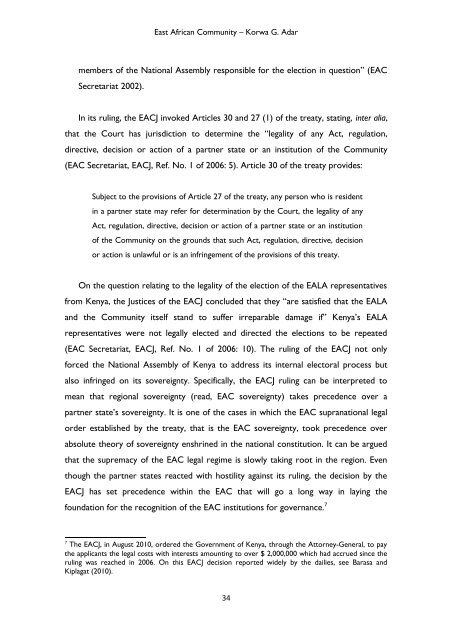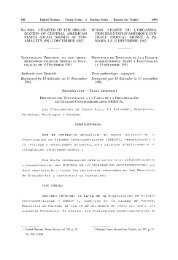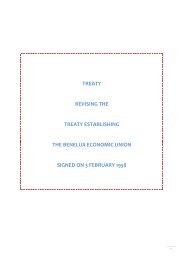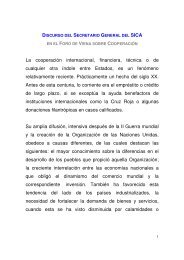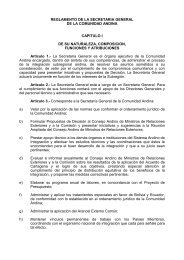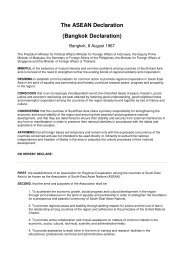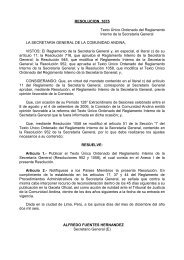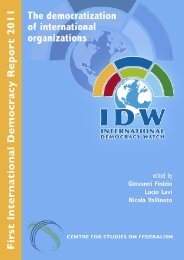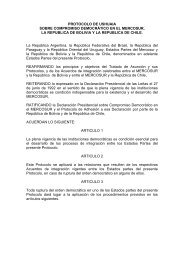Korwa G. Adar - International Democracy Watch
Korwa G. Adar - International Democracy Watch
Korwa G. Adar - International Democracy Watch
Create successful ePaper yourself
Turn your PDF publications into a flip-book with our unique Google optimized e-Paper software.
East African Community – <strong>Korwa</strong> G. <strong>Adar</strong>members of the National Assembly responsible for the election in question” (EACSecretariat 2002).In its ruling, the EACJ invoked Articles 30 and 27 (1) of the treaty, stating, inter alia,that the Court has jurisdiction to determine the “legality of any Act, regulation,directive, decision or action of a partner state or an institution of the Community(EAC Secretariat, EACJ, Ref. No. 1 of 2006: 5). Article 30 of the treaty provides:Subject to the provisions of Article 27 of the treaty, any person who is residentin a partner state may refer for determination by the Court, the legality of anyAct, regulation, directive, decision or action of a partner state or an institutionof the Community on the grounds that such Act, regulation, directive, decisionor action is unlawful or is an infringement of the provisions of this treaty.On the question relating to the legality of the election of the EALA representativesfrom Kenya, the Justices of the EACJ concluded that they “are satisfied that the EALAand the Community itself stand to suffer irreparable damage if” Kenya’s EALArepresentatives were not legally elected and directed the elections to be repeated(EAC Secretariat, EACJ, Ref. No. 1 of 2006: 10). The ruling of the EACJ not onlyforced the National Assembly of Kenya to address its internal electoral process butalso infringed on its sovereignty. Specifically, the EACJ ruling can be interpreted tomean that regional sovereignty (read, EAC sovereignty) takes precedence over apartner state’s sovereignty. It is one of the cases in which the EAC supranational legalorder established by the treaty, that is the EAC sovereignty, took precedence overabsolute theory of sovereignty enshrined in the national constitution. It can be arguedthat the supremacy of the EAC legal regime is slowly taking root in the region. Eventhough the partner states reacted with hostility against its ruling, the decision by theEACJ has set precedence within the EAC that will go a long way in laying thefoundation for the recognition of the EAC institutions for governance. 77The EACJ, in August 2010, ordered the Government of Kenya, through the Attorney-General, to paythe applicants the legal costs with interests amounting to over $ 2,000,000 which had accrued since theruling was reached in 2006. On this EACJ decision reported widely by the dailies, see Barasa andKiplagat (2010).34


